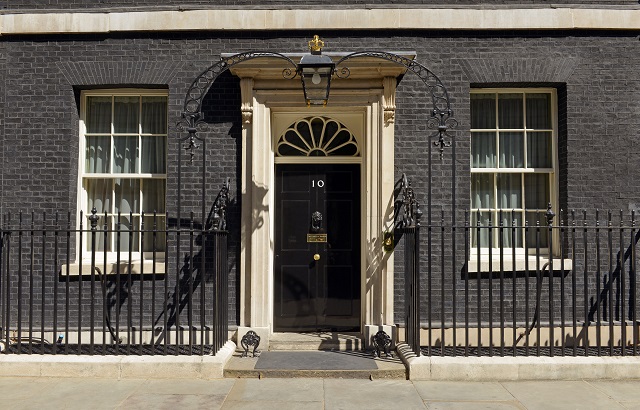Boris Johnson is set to resign as Conservative leader but will reportedly continue as prime minister until the autumn.
According to the BBC, a Conservative leadership race will take place this summer and a new prime minister will be selected in time for the Tory party conference in October 2022.
A 10 Downing Street spokesperson said on 7 June 2022: “The prime minister will make a statement to the country today.”
Tim Graf, head of Emea macro strategy at State Street, said: “Boris Johnson’s resignation does little to change the macroeconomic reality for the UK or the market reality for the pound, where the toxic mix of rising household costs, particularly domestic energy costs, and slowing growth look likely to test any future leader.
“Sterling could be better supported in the coming days with the removal of near-term political uncertainty, but I would see rallies as opportunities to sell given the prevailing economic malaise. Slowing growth should also be a pretext for the Bank of England to slow plans to raise interest rates, further weighing on the pound.
“However, UK assets might not fare too badly. A less proactive monetary policy committee could leave gilts more attractive as a consequence. And UK equities, particularly large-cap multinationals, should be able to continue their better relative performance given we expect the weakness of sterling to extend.”
Cabinet mutiny
Johnson’s departure follows around 60 resignations, as of the time of publication, including Rishi Sunak as chancellor of the exchequer and Guy Opperman as pensions minister.
He has been under fire for most of his tenure as prime minister but the final nail in the coffin was his handling of the groping accusations against the former Conservative party deputy chief whip.
Even newly appointed chancellor Nadhim Zahawi had written to Johnson to quit as prime minister after a mere 36 hours into the job.
But not all cabinet ministers are prepared to resign from their role.
Therese Coffey, the Secretary of State for Work and Pensions, tweeted on 7 June : “I asked to speak to the PM yesterday evening and had still hoped to do so today. I fully understand colleagues’ concerns and the very bad situation we are now in. The wheels of government need, though, to keep turning, especially at DWP (Department for Work and Pensions) which helps the most vulnerable in society.
“DWP needs to be firing on all cylinders to support them, especially with the cost of living payment beginning to be paid next week as part of our help for households.”
Opperman
Prior to his departure, Opperman had only just overtaken Sir Steve Webb as the longest serving pensions minister since the post was first created in 1998.
Opperman had been in the role for just over five years – taking the role in June 2017 when Theresa May was prime minister.
The advice industry has expressed sadness over Opperman’s exit as pensions minister.
Jon Greer, head of retirement policy at Quilter, said: “This marks the end of a fairly long period of stability in the post, which has typically been a revolving door with many ministers using it as a springboard to jobs in the treasury. Pensions by their very nature are long term and pension policy benefits from long standing ministers.
“Setting retirement policy and ensuring we have a well-functioning state pension system is a long-term project but it is unlikely we’ll see the kind of stability Opperman brought for some time now. In just 24 years, there have been 14 ministers with only Sir Steve Webb staying for longer than two years.
“During his time in the post, Opperman has been an influential figure in driving a number of considerable projects and policies such as the upcoming pensions dashboard, which will allow users to see all their pension policies in one place. Opperman was quick to grasp the issues in pension landscape but progress was often hampered by the political backdrop such as Brexit, Tory infighting and the pandemic.
“Opperman has been keen to drive customer engagement and help people understand their pension and get value for money. He has been a leading force in pushing for ESG in pensions and investments and developing the available types of pensions such as Collective Defined Contribution (CDC). It is without doubt sad to see him go.”
Kate Smith, head of pensions at Aegon, added: “The pensions minister’s resignation leaves pensions in turmoil.
“He was personally leading a number of initiatives to improve pensions engagement including the pension dashboard and the pension engagement season. We had been expecting the government response to the DWP pension dashboard consultation with final regulations any day and everything hangs off this, including the timetable for schemes to connect to dashboards. Every day delayed puts the smooth implementation of the dashboard in jeopardy.
“Initiatives to improve member engagement with their pensions were gathering momentum. These need to continue at pace to help improve understanding of pensions.”








